Charles E W Bean, Diaries, AWM38 3DRL 606/60/1 - September - October 1916 - Part 3
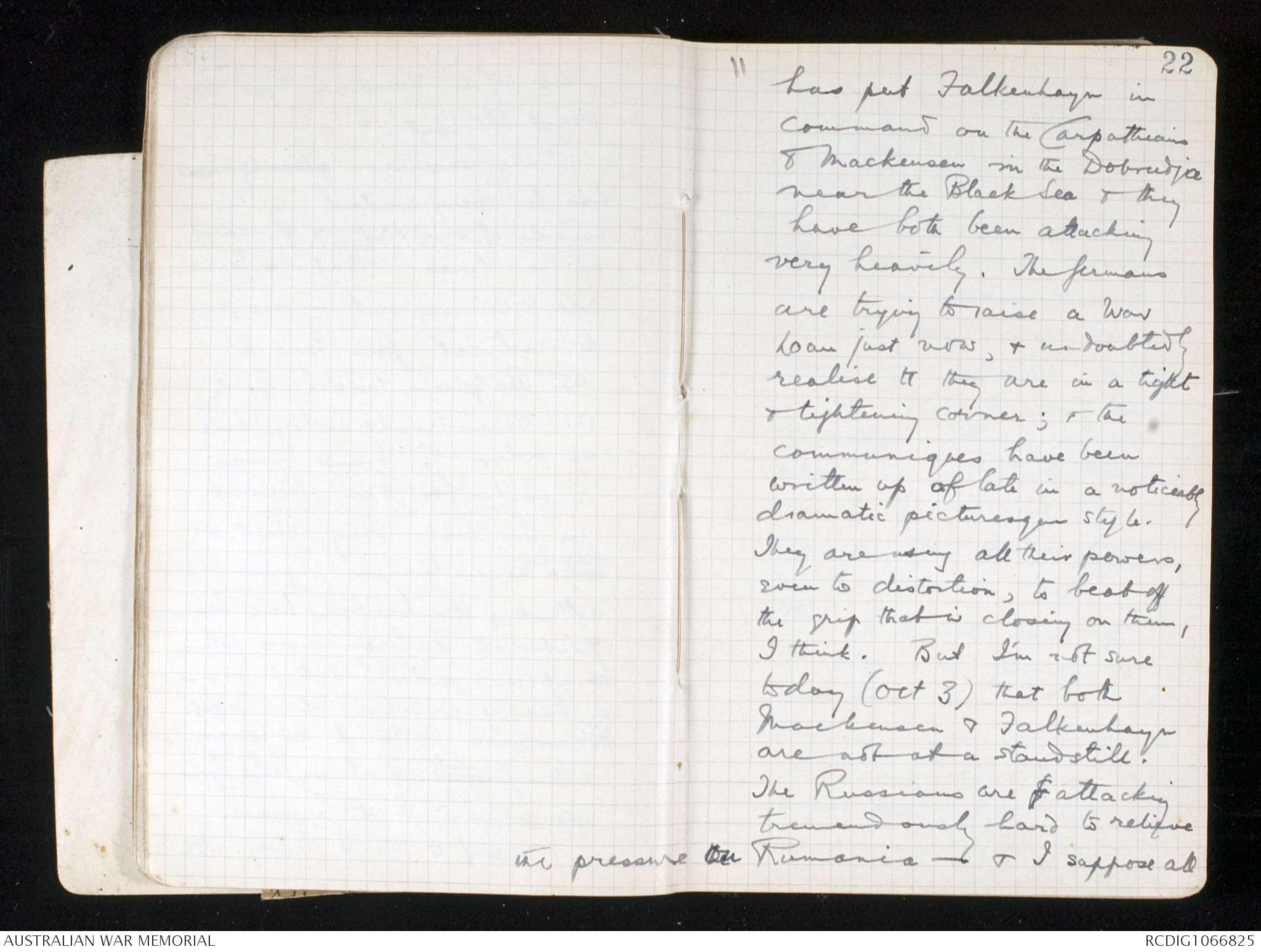
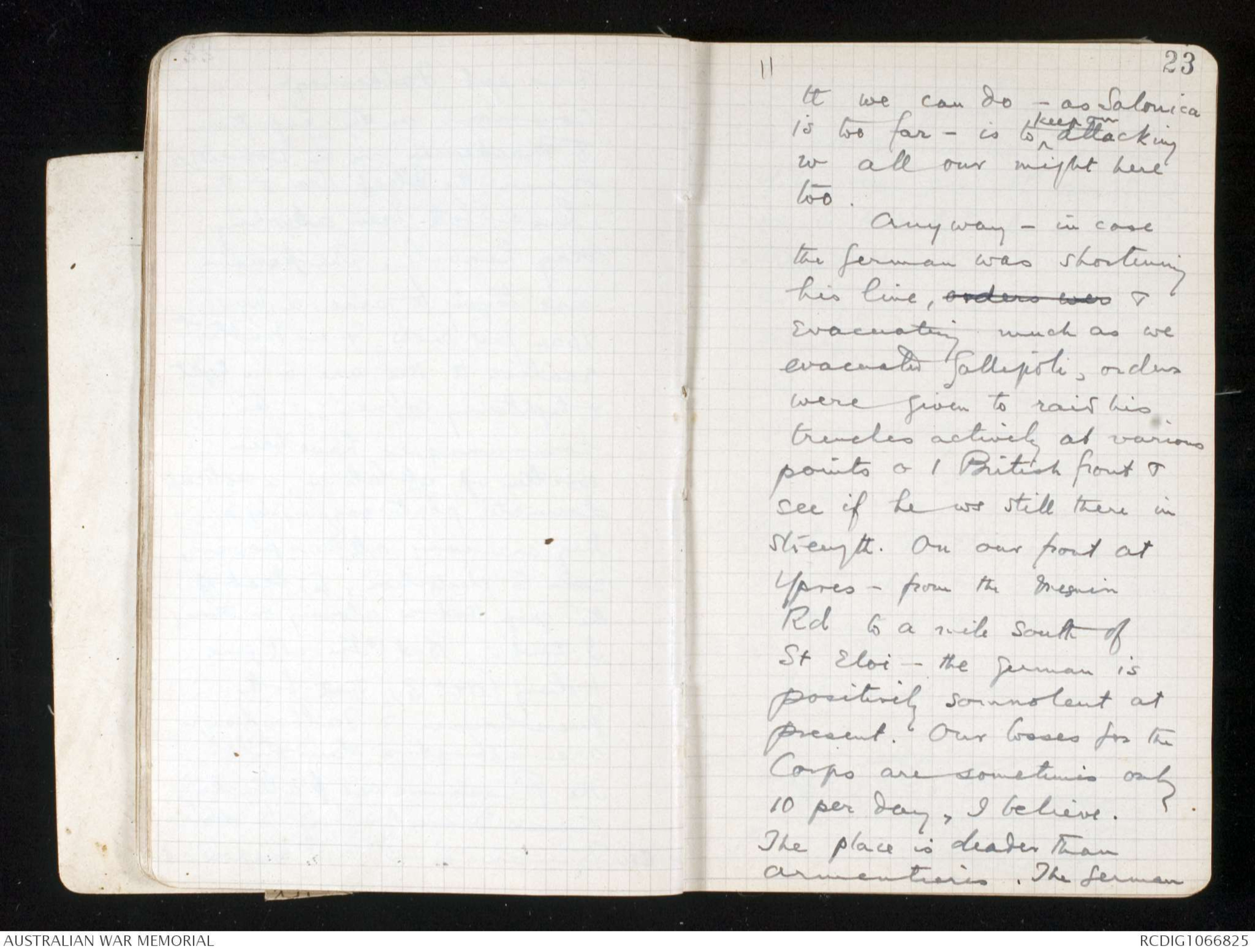
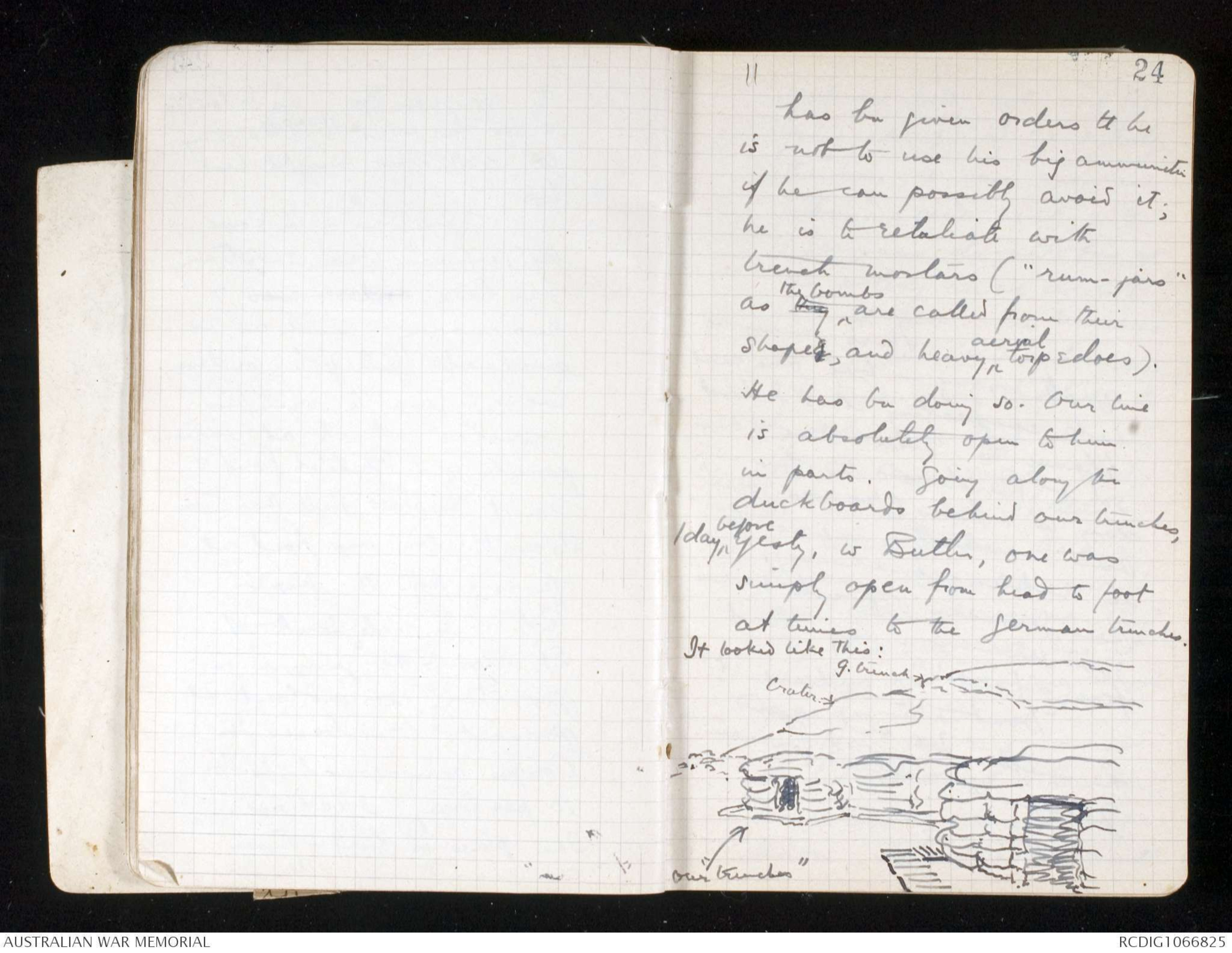
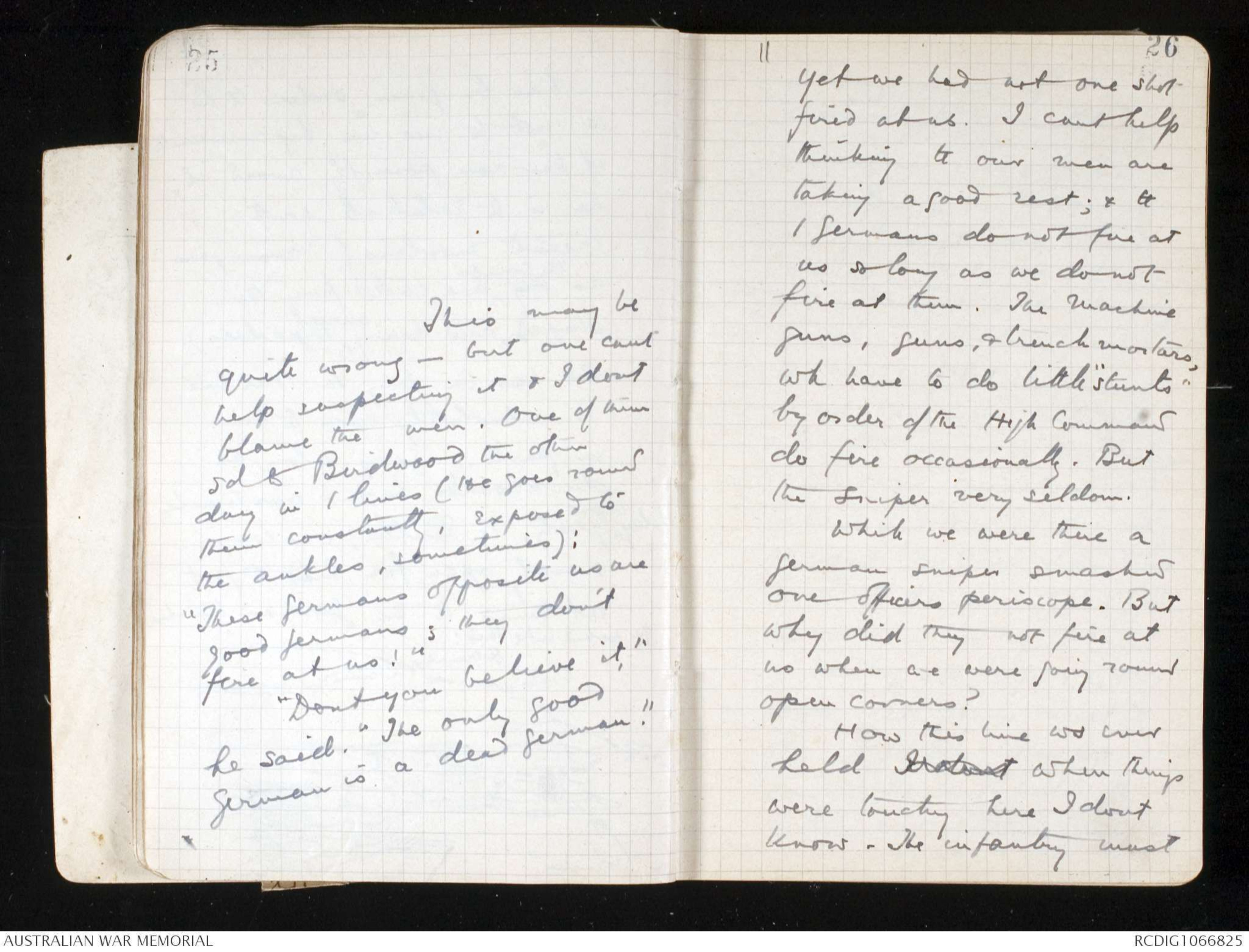
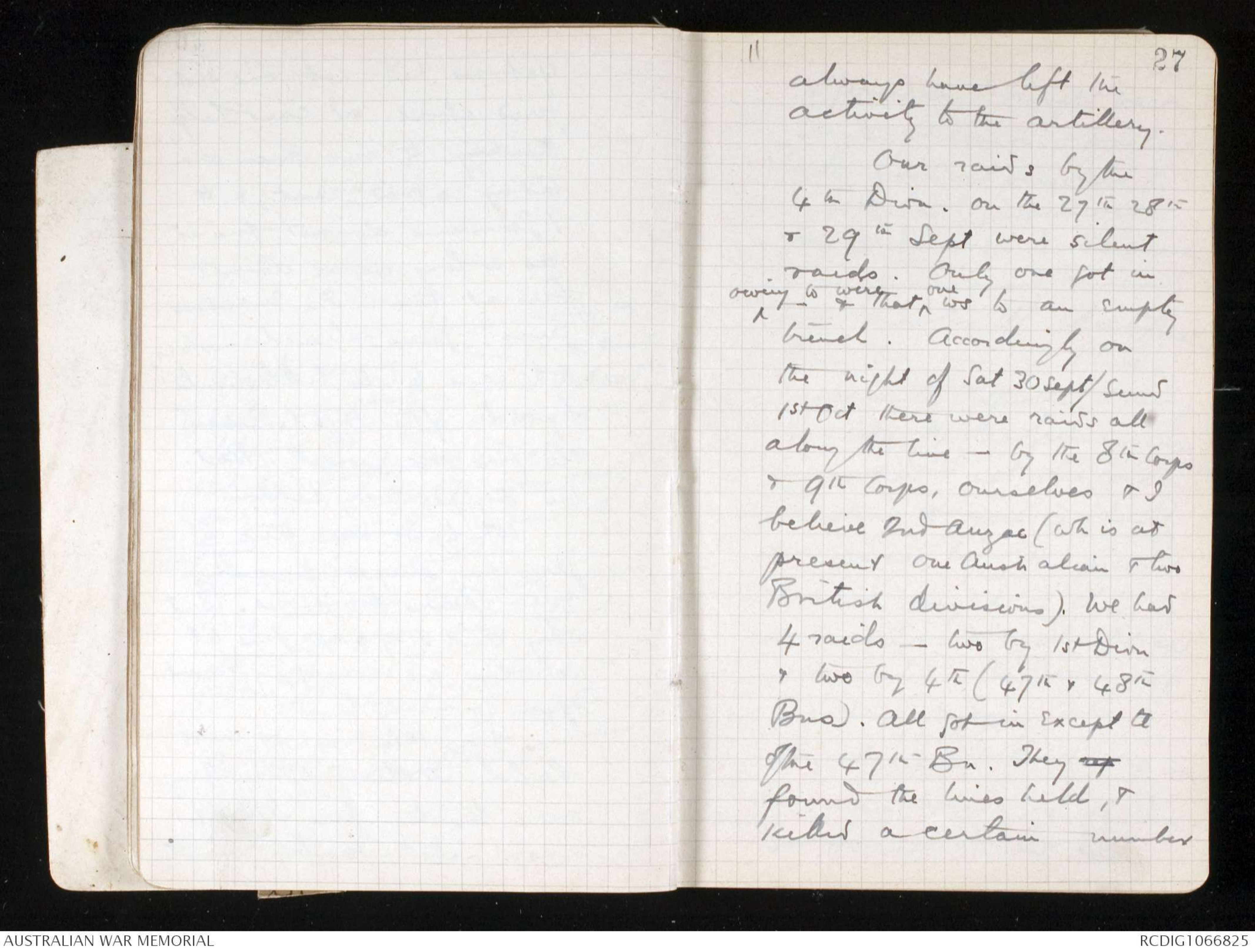
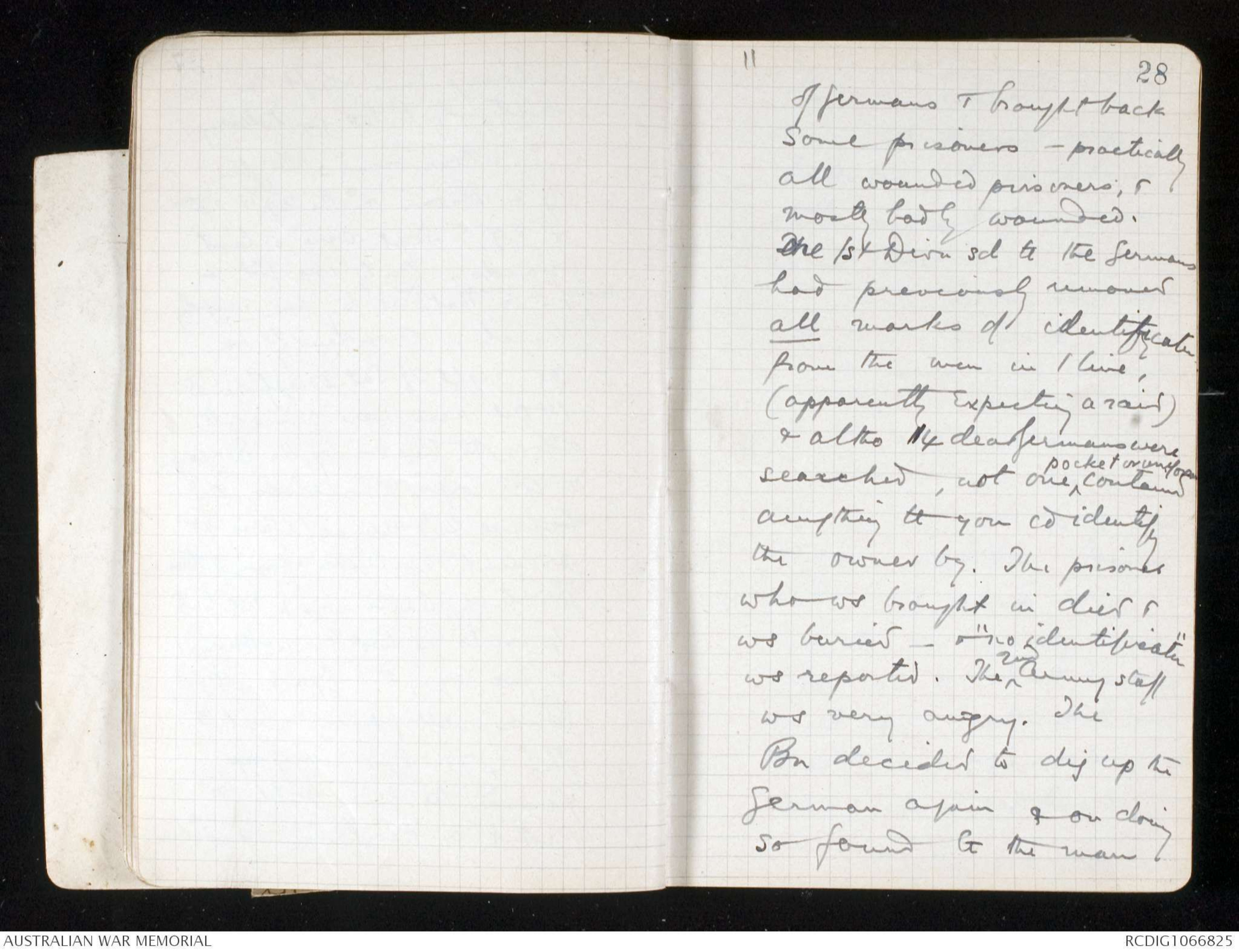
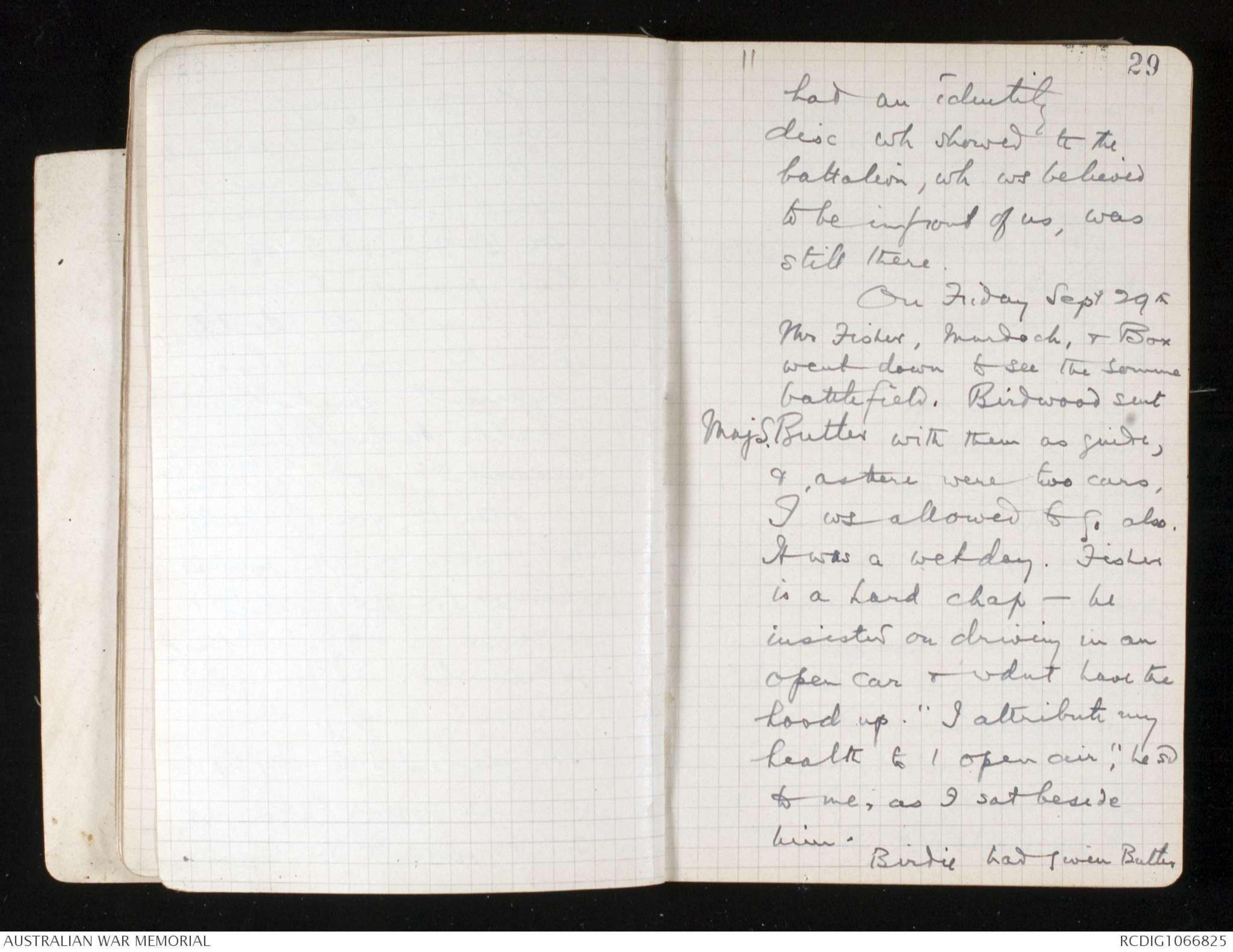
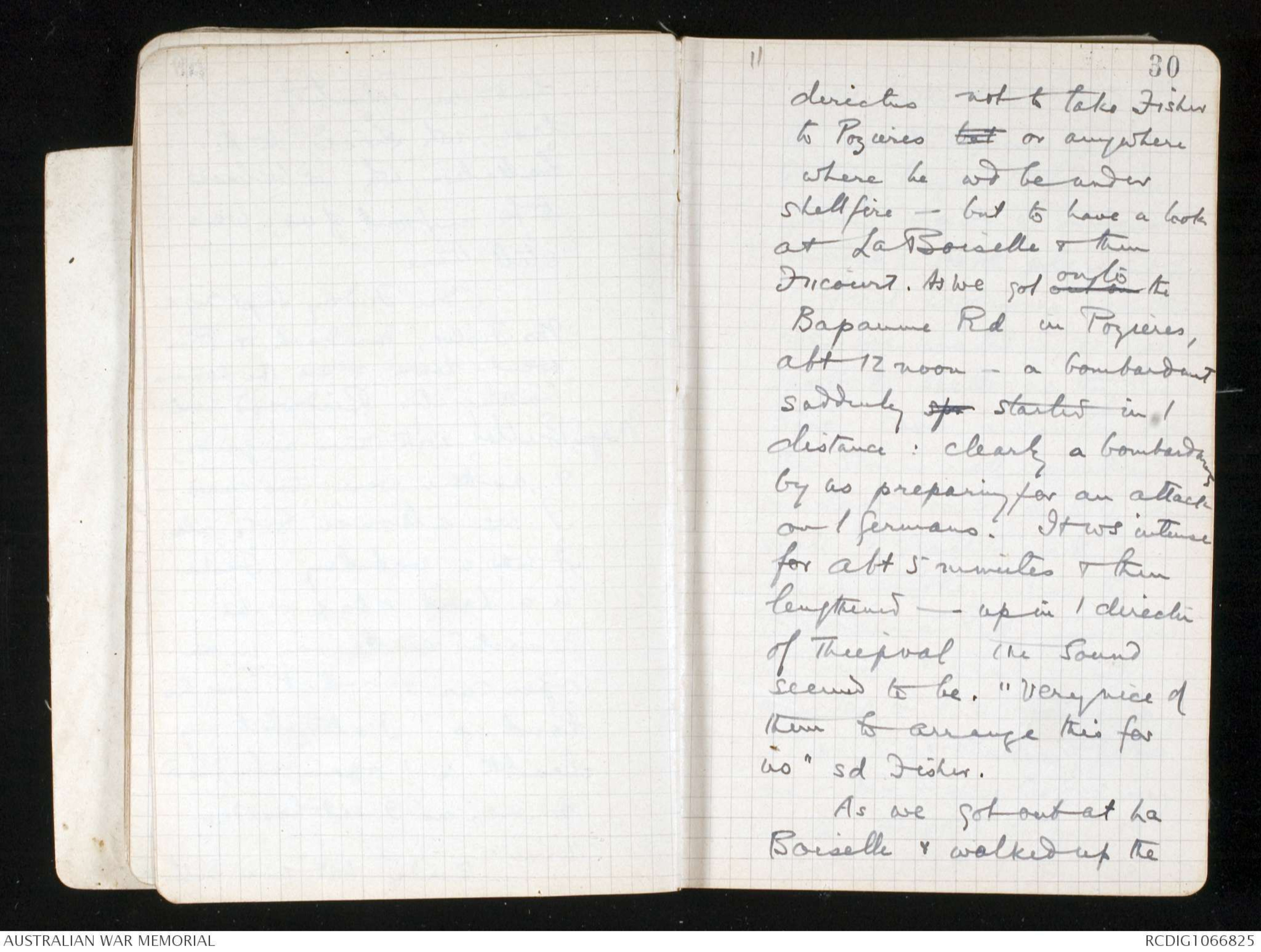
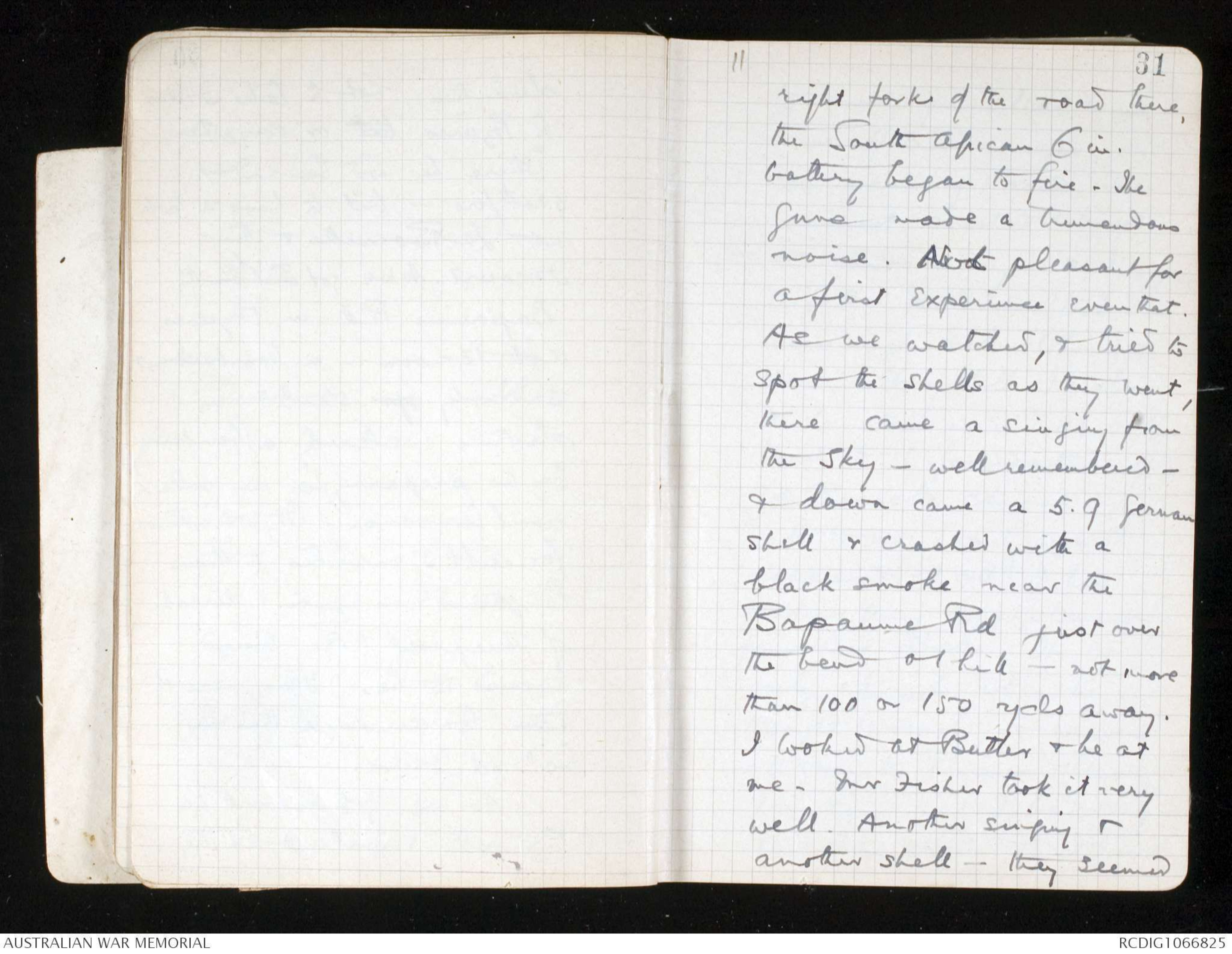
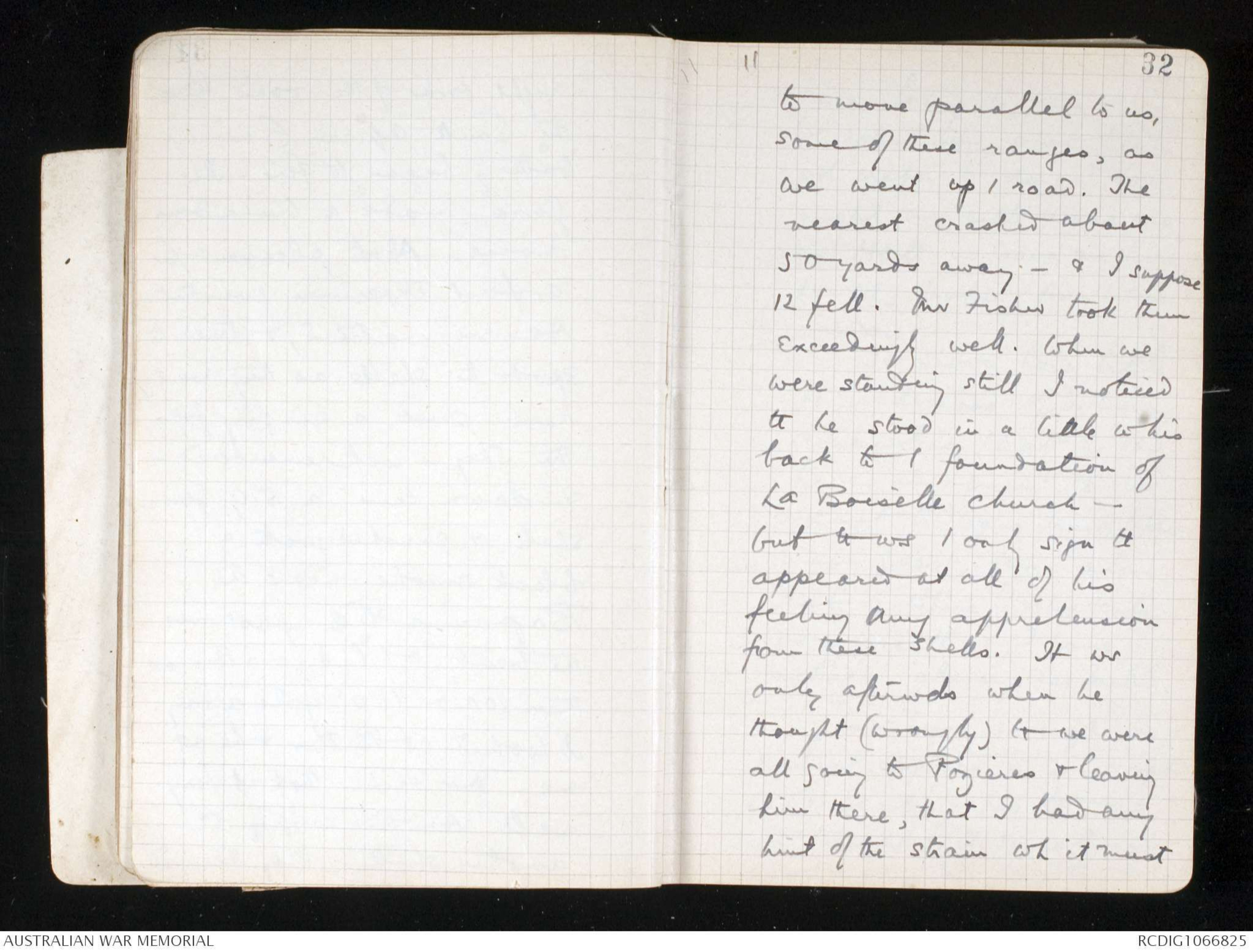
11 22
has put Falkenhayn in
command on the Carpathians
& Mackensen in the Dobrudja
near the Black Sea & they
have both been attacking
very heavily. The Germans
are trying to raise a War
Loan just now, & undoubtedly
realise tt they are in a tight
& tightening corner; & the
communiques have been
written up of late in a noticeably
dramatic picturesque style.
They are using all their powers,
even to distortion, to beat off
the grip that is closing on them,
I think. But I'm not sure
today (Oct 3) that both
Mackensen & Falkenhayn
are not at a standstill.
The Russians are f attacking
tremendously hard to relieve
the pressure on Rumania - & I suppose all
11 23
tt we can do - as Salonica
is too far - is to ^keep on attacking
w all our might here
too.
Anyway - in case
the German was shortening
his line, orders was &
evacuating much as we
evacuated Gallipoli, orders
were given to raid his
trenches actively at various
points o / British front &
see if he ws still there in
strength. On our front at
Ypres - from the Mesnin
Rd to a mile South of
St Eloi - the German is
positively somnolent at
present. Our losses for the
Corps are sometimes only
10 per day, I believe.
The place is deader than
Armentieres. The German
11 24
has bn given orders tt he
is not to use his big ammunitn
if he can possibly avoid it;
he is to retaliate with
trench mortars ("rum-jars"
as they ^the bombs are called from their
shaped, and heavy ^aerial torpedoes).
He has bn doing so. Our line
is absolutely open to him
in parts. Going along the
duckboards behind our trenches,
/ day ^before yesty, w Butler, one was
simply open from head to foot
at times to the German trenches.
It looked like this:
[Hand drawn sketch]
25
This may be
quite wrong - but one cant
help suspecting it & I dont
blame the men. One of them
sd to Birdwood the other
day in / lines (He goes round
them constantly, exposed to
the ankles, sometimes):
"These Germans opposite us are
good Germans; they don't
fire at us!"
"Dont you believe it,"
he said. "The only good
German is a dead German."
11 26
yet we had not one shot
fired at us. I cant help
thinking tt our men are
taking a good rest; & tt
/ Germans do not fire at
us so long as we do not
fire at them. The machine
guns, guns, & trench mortars,
wh have to do little "stunts"
by order of the High Command
do fire occasionally. But
the sniper very seldom.
While we were there a
German sniper smashed
one officers periscope. But
why did they not fire at
us when we were going round
open corners?
How this line ws ever
held I dont when things
were touchy here I dont
know. The infantry must
11 27
always have left the
activity to the artillery.
Our raids by the
4th Divn. on the 27th 28th
& 29th Sept were silent
raids. Only one got in
^owing to wire - & that ^one ws to an empty
trench. Accordingly on
the night of Sat 30 Sept / Sund
1st Oct there were raids all
along the line - by the 8th Corps
& 9th Corps, ourselves & I
believe 2nd Anzac (wh is at
present one Australian & two
British divisions). We had
4 raids - two by 1st Divn
& two by 4th (47th & 48th
Bns). All got in except tt
of the 47th Bn. They ap
found the lines held, &
killed a certain number
11 28
of Germans & brought back
some prisoners - practically
all wounded prisoners, &
mostly badly wounded.
The 1st Divn sd tt the Germans
had previously removed
all marks of identificatn
from the men in / line,
(apparently expecting a raid)
& altho 14 dead Germans were
searched, not one ^pocket or uniform contained
anything tt you cd identify
the owner by. The prisoner
who ws brought in died &
ws buried - & "no identificatn"
ws reported. The ^2nd Army staff
ws very angry. The
Bn decided to dig up the
German again & on doing
so found tt the man
11 29
had an identity
disc wh showed tt the
battalion, wh ws believed
to be in front of us, was
still there.
On Friday Sept 29th
Mr Fisher, Murdoch, & Box
went down to see the Somme
battlefield. Birdwood sent
Maj S. Butler with them as guide,
&, as there were two cars,
I ws allowed to go also.
It was a wet day. Fisher
is a hard chap - he
insisted on driving in an
open car & wdnt have the
hood up. "I attribute my
health to / open air," he sd
to me, as I sat beside
him.
Birdie had given Butler
11 30
directns not to take Fisher
to Pozieres but or anywhere
where he wd be under
shell fire - but to have a look
at La Boiselle & then
Fricourt. As we got out on on to the
Bapaume Rd in Pozieres,
abt 12 noon - a bombardment
suddenly sp started in /
distance: clearly a bombardment
by us preparing for an attack
on / Germans. It ws intense
for abt 5 minutes & then
lengthened - up in / direction
of Thiepval the sound
seemed to be. "Very nice of
them to arrange this for
us" sd Fisher.
As we got out at La
Boiselle & walked up the
11 31
right fork of the road there,
the South African 6 in.
battery began to fire. The
guns made a tremendous
noise. Not pleasant for
a first experience even that.
As we watched, & tried to
spot the shells as they went,
there came a singing from
the sky - well remembered -
& down came a 5.9 German
shell & crashed with a
black smoke near the
Bapaume Rd just over
the bend o / hill - not more
than 100 or 150 yds away.
I looked at Butler & he at
me. Mr Fisher took it very
well. Another singing &
another shell - they seemed
11 32
to more parallel to us,
some of these ranges, as
we went up / road. The
nearest crashed about
50 yds away - & I suppose
12 fell. Mr Fisher took them
exceedingly well. When we
were standing still I noticed
tt he stood in a little w his
back to / foundation of
La Boiselle church -
but tt ws / only sign tt
appeared at all of his
feeling any apprehension
from these shells. It ws
only afterwds when he
thought (wrongly) tt we were
all going to Pozieres & leaving
him there, that I had any
hint of the strain wh it must
 Lulu B
Lulu BThis transcription item is now locked to you for editing. To release the lock either Save your changes or Cancel.
This lock will be automatically released after 60 minutes of inactivity.